- HOME
- The Need for GAP
The Need for GAP
GAP stands for Good Agricultural Practice. The Ministry of Agriculture, Forestry and Fisheries of Japan (MAFF) calls it agricultural production management processes.
GAP refers to initiatives aimed at ensuring the sustainability of agriculture, which are carried out through the following specific activities.
ASIAGAP and JGAP are GAP certification programs and standards on farm and group management, which are implemented by farms and farmers' groups such as Japan Agricultural Cooperatives (JA). They are also methods for agricultural production process management that MAFF recommends.
※ ASIAGAP:Asia Good Agricultural
Practice
※JGAP:Japan Good Agricultural Practice
SDGs and GAP
Agriculture is an industry closely related to the global environment. The natural environment, including soil, water, and temperature, is important for the sustainable production of farm products because these elements determine the future of production.
To ensure the sustainability of agriculture, it is also necessary to take initiatives to secure human resources capable of being future leaders, such as securing worker safety, enhancing welfare programs for them, developing human resources, and creating work environments that are free from discrimination.
The sustainable production of farm produce as food is also related to social issues such as poverty and hunger.
Through the ASIAGAP/JGAP certification programs, the Japan GAP Foundation contributes to achieving the global Sustainable Development Goals (SDGs).
| Contents | Relevant SDGs | |
|---|---|---|
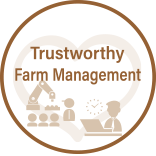 |
|
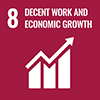  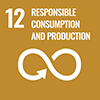 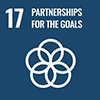 |
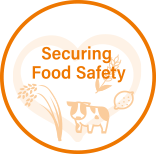 |
|
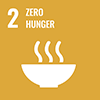 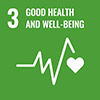  |
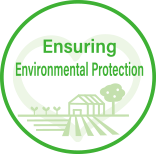 |
|
  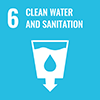 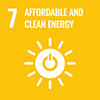   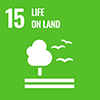 |
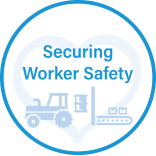 |
|
   |
 |
|
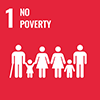  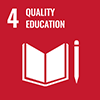 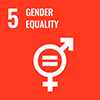   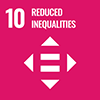  |
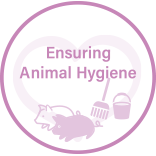 |
|
  |
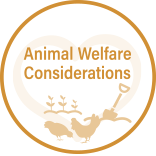 |
|
  |
*Each initiative is related to the SDGs.
To consumers -- The selection of good agricultural products starts from the selection of good farms.
ASIAGAP and JGAP are standards for
appropriate farm management. They stipulate more than 100 standards related to
the Seven Initiatives for the Sustainability of Agriculture that were mentioned
in the section on the Necessity of GAP.
ASIAGAP/JGAP certification is granted to
farms which have been confirmed through third-party audits to fulfill the
standards. In other words, they are the marks of good farms.
The selection of good agricultural products starts from the selection of good farms.
To producers -- Have you built a farm management system?
"We want to ensure the safety of the
farm products that we produce and ship."
This is the desire and legal obligation of
all farmers.
Does your farm have a quality control
system for this purpose? Have you clarified what tasks should be managed
intensively to prevent your farm from causing food accidents and who is
responsible for their management?
Does your group have an internal system for
checking the management status of each member farm?
Just one instance of inappropriate farm management can undermine confidence in the overall farm or group.
In addition, an injury on a farm can make it impossible to proceed with work as scheduled, and in the worst case, may make it impossible to continue farming itself.
Agriculture is an industry that operates using the water and soil of the land where each farm is located.If the natural environment surrounding the farm is polluted, it is impossible to produce safe agricultural products, and the yield may be reduced, too.
Suppose that you try to employ someone because the labor of your family members is not enough for your farm. Is there anyone willing to work for a farm with no consideration for work safety, human rights, or welfare?
Are there any customers who wants to deal continuously with a farm that cannot investigate the cause of a complaint or present measures to prevent its recurrence because it keeps no records?
A solution to these problems is ASIAGAP/JGAP ,which enables the building of a farm management system at low cost.
ASIAGAP/JGAP is not a mere checklist for appropriate farm management. Many forward-thinking farms and enterprises apply these standards as a means of farm or group governance.
Initiatives for creating farms of choice are implemented based on ASIAGAP/JGAP Producers should have the ability to propose prices. To be able to do so, they need to create a strong brand, and ASIAGAP/JGAP is the first step toward that.
To manufacturers, distributors, and dealers -- Do you manage purchased products (raw materials)?
We believe that all of you wish to provide consumers with safe farm products, food, or meals. We believe that you are taking food safety initiatives for this purpose.
We also believe that you are making efforts, by creating standards for managing your respective shops or factories and applying ISO, HACCP, or other similar standards.Then, how do you manage the products you purchase, your ingredients?
Purchasing safe farm products is a
difficult issue.
Safety is invisible, and you cannot fully
manage suppliers in a market where products from many and unspecified producers
are distributed.
A company offering private brand products must never cause a food accident. This will affect the fate of the company. It is tough to create your own standards for this purpose. It is hard to visit a large number of producers to request that they comply with the standards and instruct them on them.
Agriculture is affected by weather and other natural conditions more easily than other industries.Therefore, to continue purchasing products as stably as possible, you need to select farms which are conscious of sustainability issues, such as work safety, environmental protection and food safety.
ASIAGAP and JGAP are new social infrastructure for solving these issues. They are farm management standards and certification programs jointly operated and developed by the agricultural industry and distribution industry.
ASIAGAP and JGAP are standards suitable for agricultural sites in Japan. They are also open standards available to all. ASIAGAP/JGAP are certainly able to help you improve efficiency and reduce the cost of production area management (production area audits).